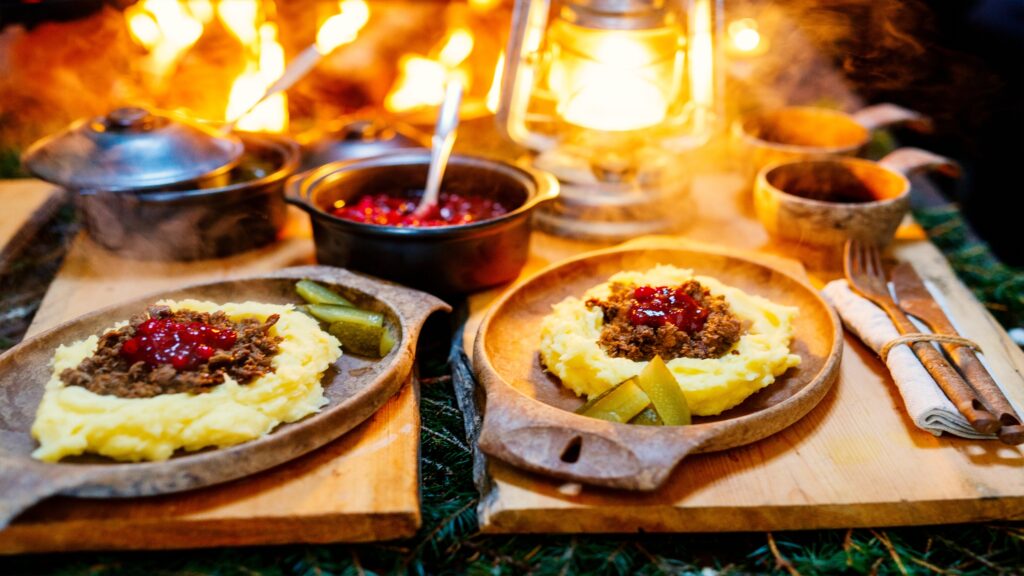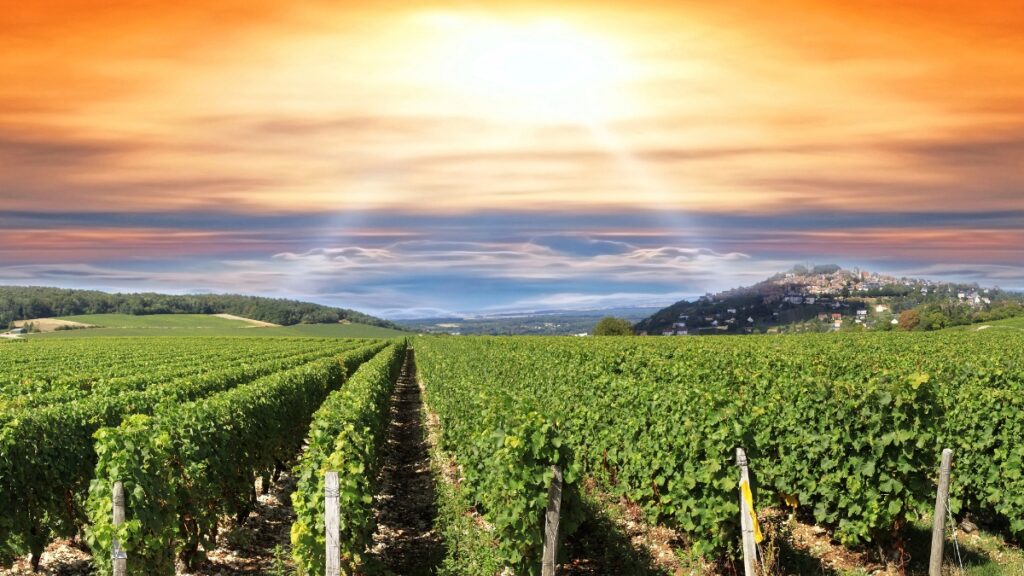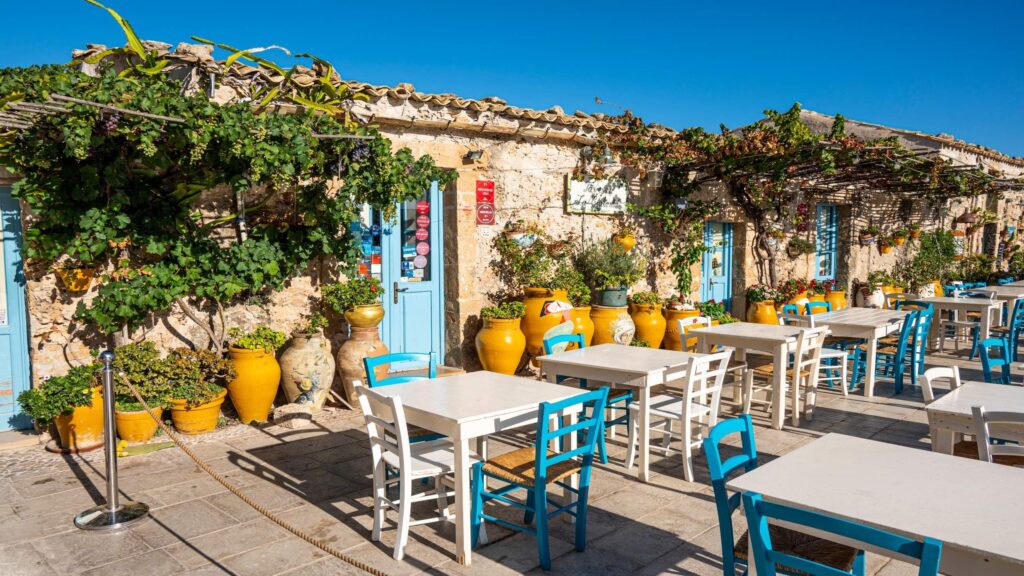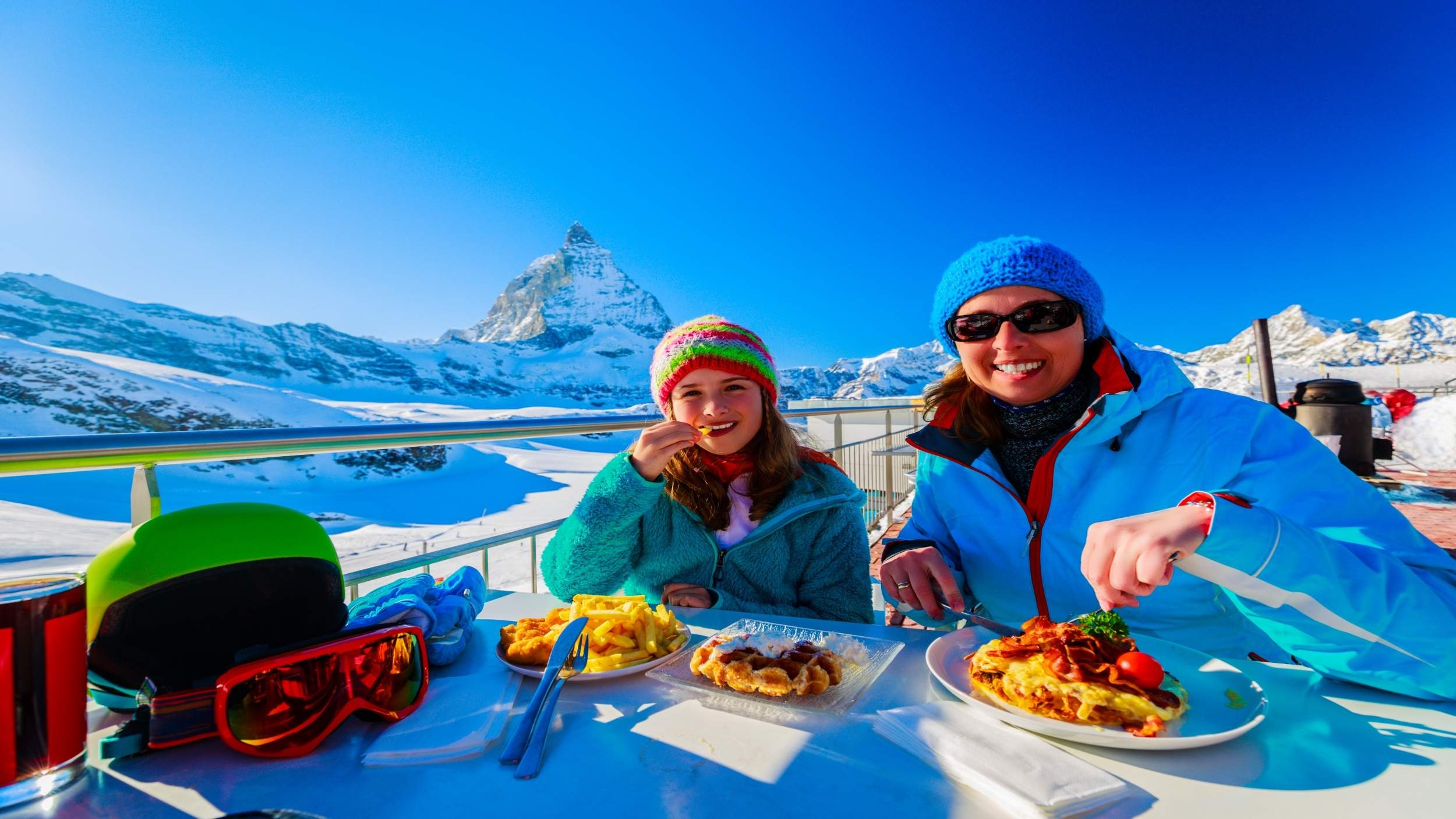
Traditional Swiss Cuisine in Alpine Regions
The rich heritage of Alpine gastronomy shapes the foundation of traditional Swiss cuisine. From snow-capped peaks to verdant valleys, each region contributes distinct flavours to Switzerland’s culinary landscape. The mountainous terrain influences cooking methods passed through generations of skilled local chefs.
Alpine Traditional Swiss Specialties
Most celebrated Swiss dishes emerge from ancient cooking practices in high-altitude kitchens across the Alps. The challenging mountain environment helped create traditional Swiss cuisine that provides warmth and sustenance during cold winters. In addition, centuries-old preservation techniques give Swiss Alpine foods their characteristic robust flavours.
Top Tip: Visit Restaurant Chesery in Gstaad for authentic Alpine cuisine prepared using traditional methods.
The art of cheese-making stands central to mountain communities’ survival through harsh winters. Although modern equipment now aids production, artisanal methods still dominate the craft. For instance, summer Alpine pastures produce distinctive herbs that flavour the milk used in cheese-making.
Mountain Cooking Experience
The practice of slow-cooking developed naturally in Alpine communities where fuel conservation was essential. Traditional Swiss cuisine reflects this heritage through hearty stews and melted cheese dishes. Particularly in winter, these warming meals bring communities together around shared tables.
Local Attraction: The Cheese Grotto of Gstaad offers traditional cheese-making demonstrations.
Mountain dwellers adapted their cooking to use locally available ingredients throughout changing seasons. While modern kitchens differ from historical ones, traditional preparation methods remain unchanged. As a result, visitors can taste authentic Alpine flavours preserved through generations of careful practice.
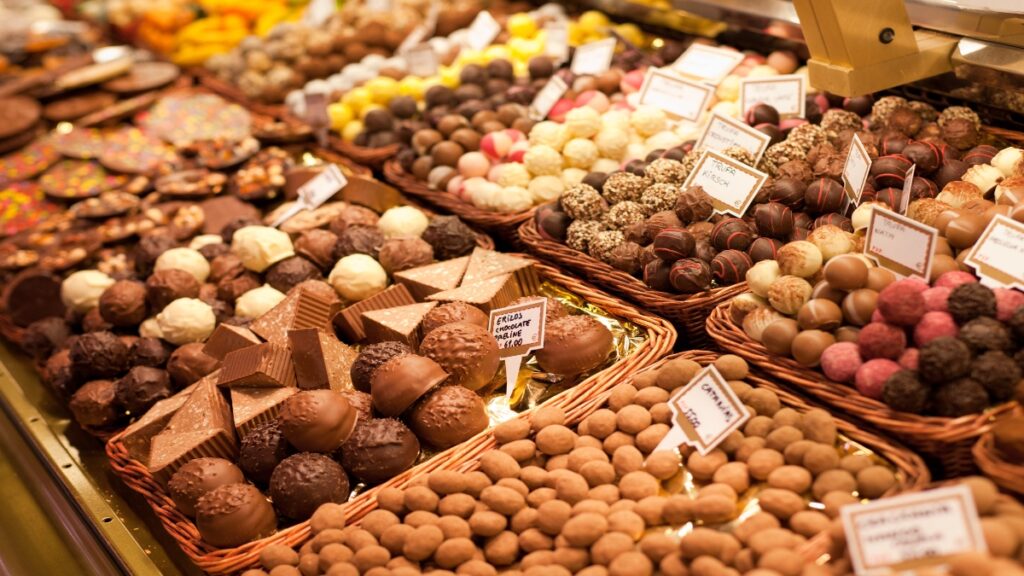
Traditional Swiss Cuisine Through Regional Delicacies
The diverse landscape of Switzerland’s regions contributes unique elements to traditional Swiss cuisine. Across mountain passes and fertile valleys, distinct cooking styles reflect local ingredients and customs. Each area maintains its authentic recipes while sharing common culinary threads.
Exploring Swiss Culinary Heritage
Regional variations define the country’s gastronomic identity through centuries-old preparation methods. Traditional Swiss cuisine showcases the ingenuity of local cooks who maximised seasonal ingredients. For example, preservation techniques vary between German, French, and Italian-speaking regions.

Interesting Fact: The Gruyère region produces over 15,000 tonnes of AOP-certified cheese annually.
Local specialities emerge from the specific climate and terrain of each Swiss canton. Although modern transportation connects all regions, traditional food boundaries remain distinct. Even so, neighbouring areas often share cooking techniques while maintaining their unique flavours.

Seasonal Swiss Food Traditions
The changing seasons dictate the rhythm of Swiss food preparation throughout the year. Particularly in spring, fresh Alpine herbs enhance traditional dishes with distinctive flavours. As a result, seasonal menus reflect the deep connection between land and cuisine.
Local Activity: Join seasonal foraging walks in Zermatt to collect wild Alpine herbs.
Swiss food culture celebrates seasonal ingredients through time-honoured cooking methods. While winter calls for hearty cheese dishes, summer brings lighter fare. Certainly, this seasonal approach keeps traditional Swiss cuisine relevant in modern times.
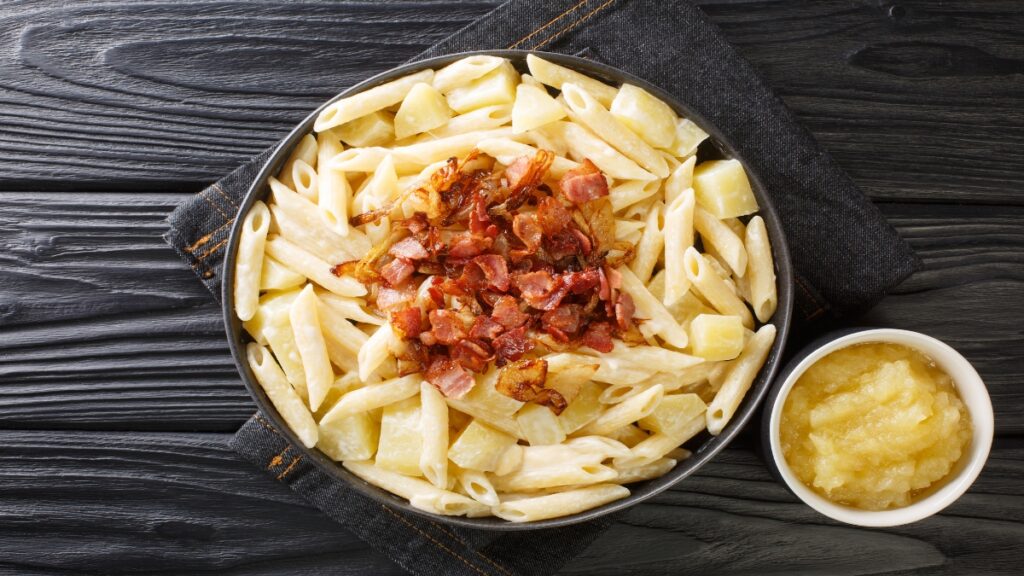
Historic Traditional Swiss Cuisine Guide
The culinary journey through Switzerland reveals centuries of cultural influences and adaptations. Mountain communities developed distinct approaches to traditional Swiss cuisine over generations. Each valley and region contributed unique elements to Switzerland’s food heritage.
Swiss Food Culture Origins
Ancient cooking methods shaped the development of traditional Swiss cuisine across Alpine communities. While modern kitchens differ greatly, fundamental techniques remain unchanged through centuries. For instance, cheese-making processes still follow ancestral patterns established generations ago.
Interesting Fact: The world’s first milk chocolate was created in Vevey, Switzerland, in 1875.
Local ingredients determined the evolution of cooking techniques in different regions. Although transportation has modernised, traditional food preparation maintains its authenticity. As a result, visitors experience genuinely historic flavours in contemporary settings.

Traditional Cooking Methods
The preservation of food through winter months influenced Swiss culinary practices significantly. Traditional Swiss cuisine developed unique methods for storing cheese and dried meats. In addition, these techniques created distinctive flavours that define Swiss gastronomy today.
Local Places of Interest: Visit the Alimentarium Food Museum in Vevey for historic kitchen displays.
Alpine communities adapted their cooking to harsh mountain conditions over centuries. While modern conveniences exist, traditional methods still produce the finest results. Certainly, this commitment to authenticity ensures the survival of historical Swiss recipes.
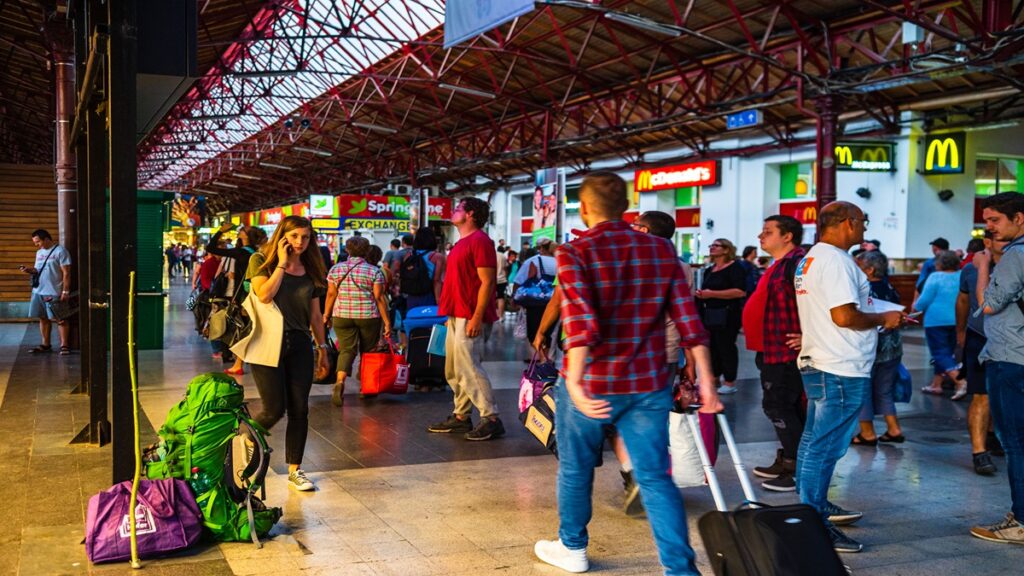
Swiss Restaurant Behavior Guidelines
The refined atmosphere of Swiss restaurants sets high standards for dining etiquette and behavior. Traditional Swiss cuisine deserves appreciation in a peaceful, respectful setting. Between Zurich and Geneva, restaurants uphold these cultural dining traditions.
Understanding Swiss Dining Etiquette
Local customs dictate appropriate behavior in Swiss restaurants that serve traditional dishes. Maintaining moderate speaking volume helps preserve the calm atmosphere in dining spaces. Diners should silence phones to respect the peaceful ambiance of Swiss establishments.
Local tip: Many restaurants display a small bell for summoning service rather than calling out.
Swiss dining culture emphasizes proper table manners and respect for fellow guests. At the same time, each restaurant sets its own expectations for appropriate conduct. Particularly in upscale establishments, refined behavior enhances everyone’s dining experience.
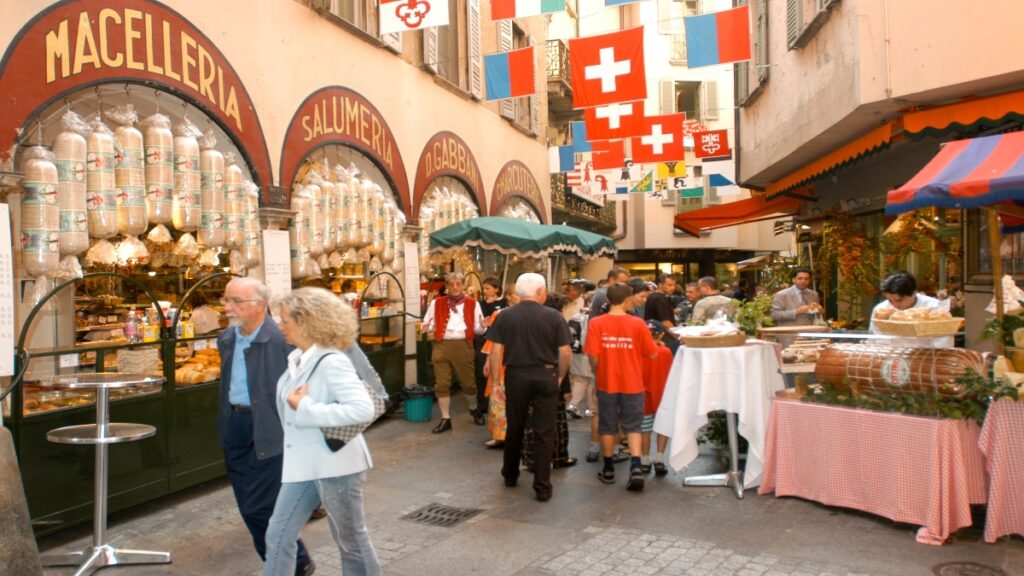
Smart Budgeting for Swiss Meals
Thoughtful planning helps visitors enjoy traditional Swiss cuisine without straining their travel budget. Local markets offer fresh ingredients for preparing classic Swiss dishes at home. However, experiencing restaurant dining remains essential to understanding Swiss culture.
Top tip: Look for daily lunch specials called “Tagesmenü” for better value.
Many restaurants offer set menus that provide excellent value for sampling traditional dishes. Such as the three-course business lunches common in city restaurants. Even so, saving room in your budget for fine dining creates memorable experiences.
Navigating Language in Traditional Swiss Restaurants
The multilingual heritage shapes dining experiences across Swiss regions and establishments. Traditional Swiss cuisine thrives in restaurants serving guests in multiple languages. Between Lausanne and Bern, cultural diversity enriches culinary traditions.
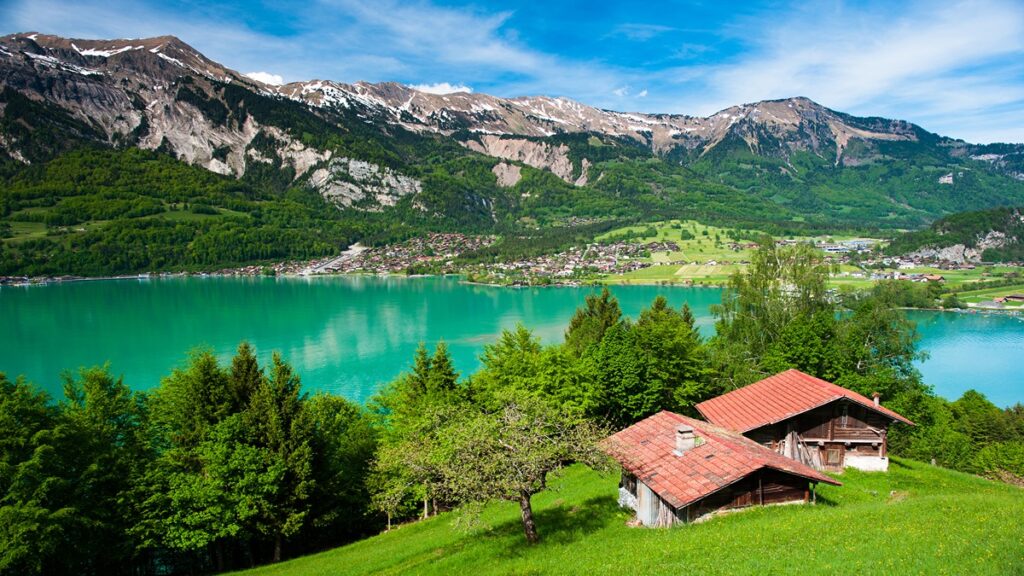
Communication in Swiss Dining
Swiss restaurants welcome guests with menus in German, French, Italian, and often English. Furthermore, understanding basic phrases helps enhance your dining experience. At the same time, staff appreciate guests who ask about preferred languages.
Local tip: Learn to say “thank you” in multiple Swiss languages for a personal touch.
The dining atmosphere benefits from clear communication between guests and staff. In addition, many establishments provide detailed menu translations for international visitors. Particularly in tourist areas, restaurants accommodate various language preferences.

Regional Language Considerations
Different regions maintain their distinct linguistic traditions alongside culinary specialties. Additionally, flavors vary across language regions, reflecting local cultural heritage. However, respectful communication bridges any language differences.
Top tip: Download a Swiss food terms translator app before your restaurant visit.
Restaurant staff generally speak multiple languages to serve diverse clientele effectively. Such as German-speaking regions offering French and English service options. Even so, attempting basic local phrases shows respect for Swiss culture.

Experience Traditional Swiss Cuisine Today
The modern interpretation of Swiss culinary traditions blends historical methods with contemporary techniques. Additionally, skilled chefs across Switzerland maintain the essence of local cooking heritage. Although times change, authentic flavours remain central to Swiss gastronomy.
Swiss Food Festival Calendar
Regional celebrations showcase the diversity of Swiss culinary heritage throughout the year. While summer brings outdoor food festivals, winter features indoor gastronomic events. For example, cheese festivals attract visitors from across Europe to sample local specialities.
Top Tip: Visit the annual Swiss Food Festival in Zermatt during August for traditional demonstrations.
Local communities preserve their culinary heritage through seasonal celebrations and markets. Even so, each festival adds contemporary elements to traditional presentations. As a result, visitors experience both historical and modern aspects of Swiss cuisine.
Local Dining Customs
Swiss dining etiquette reflects the country’s deep respect for traditional food culture. Particularly in rural areas, meals follow centuries-old customs and serving traditions. The practice of sharing fondue, especially, maintains strict cultural guidelines.
Local Activity: Experience traditional Swiss dining customs at Zunfthaus zur Waag in Zürich.
Meal times bring families and communities together around traditional Swiss dishes. Although modern life moves quickly, dining remains an unhurried, social occasion. Certainly, this commitment to traditional customs enriches the Swiss dining experience.
Discovering Traditional Swiss Cuisine: Final Thoughts
The thoughtful exploration rewards careful planning and cultural awareness. Furthermore, regional specialties flourish from mountain chalets to city restaurants, each offering unique perspectives. While famous establishments require advance booking, local gems welcome spontaneous visits. Most importantly, respect for dining customs enhances every meal. Certainly, this combination of planning and cultural sensitivity creates memorable culinary experiences across Switzerland’s diverse gastronomic landscape.

